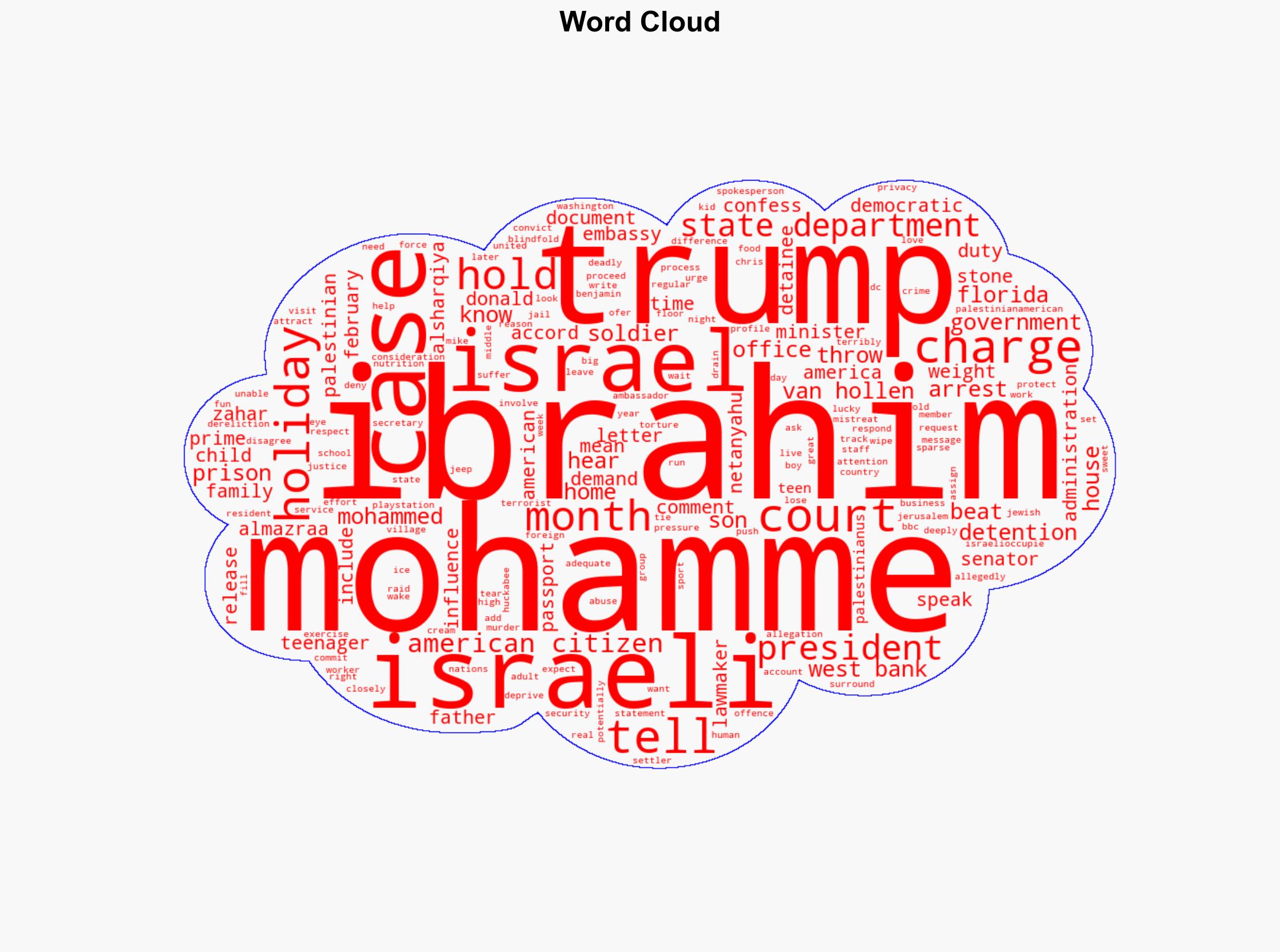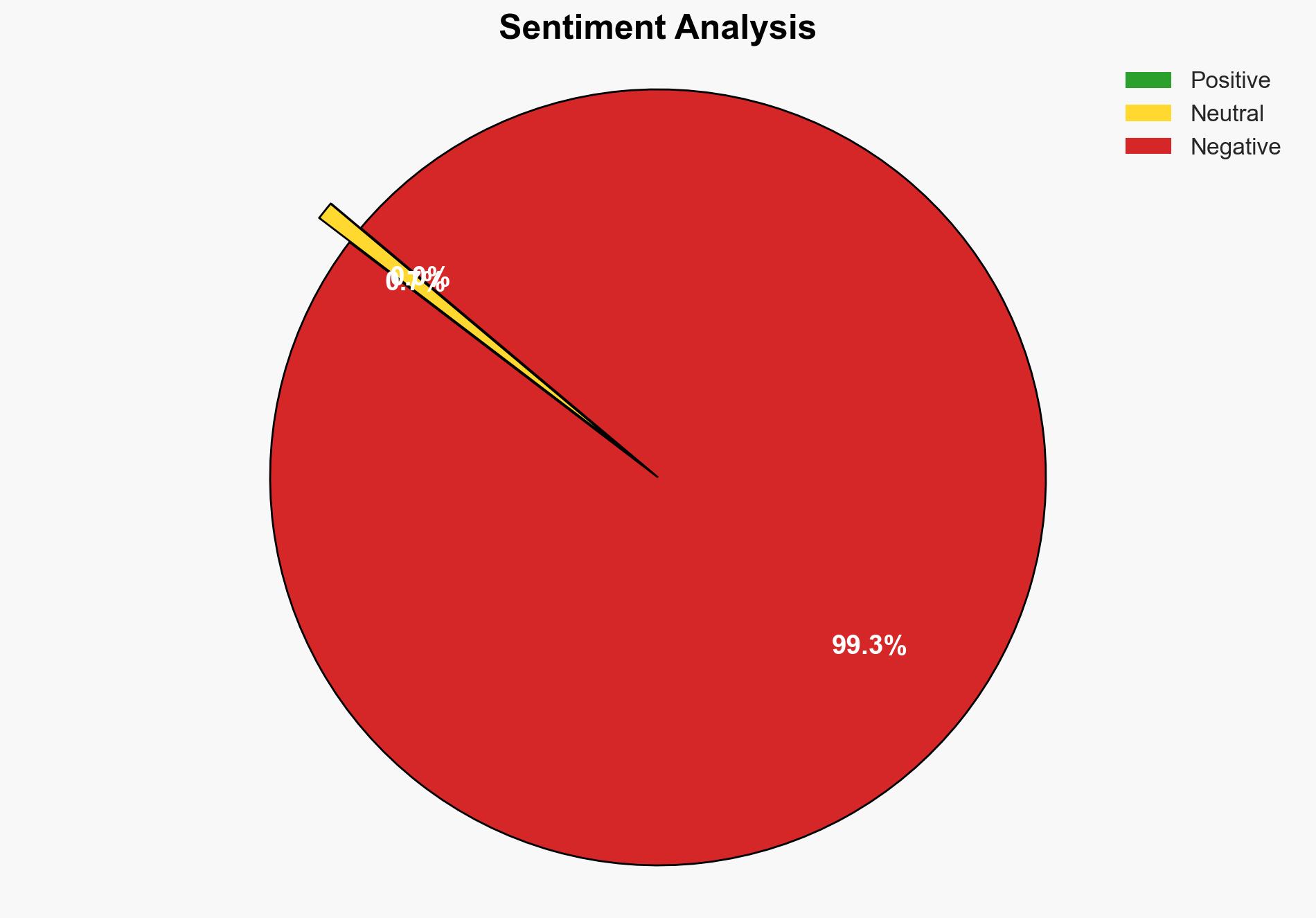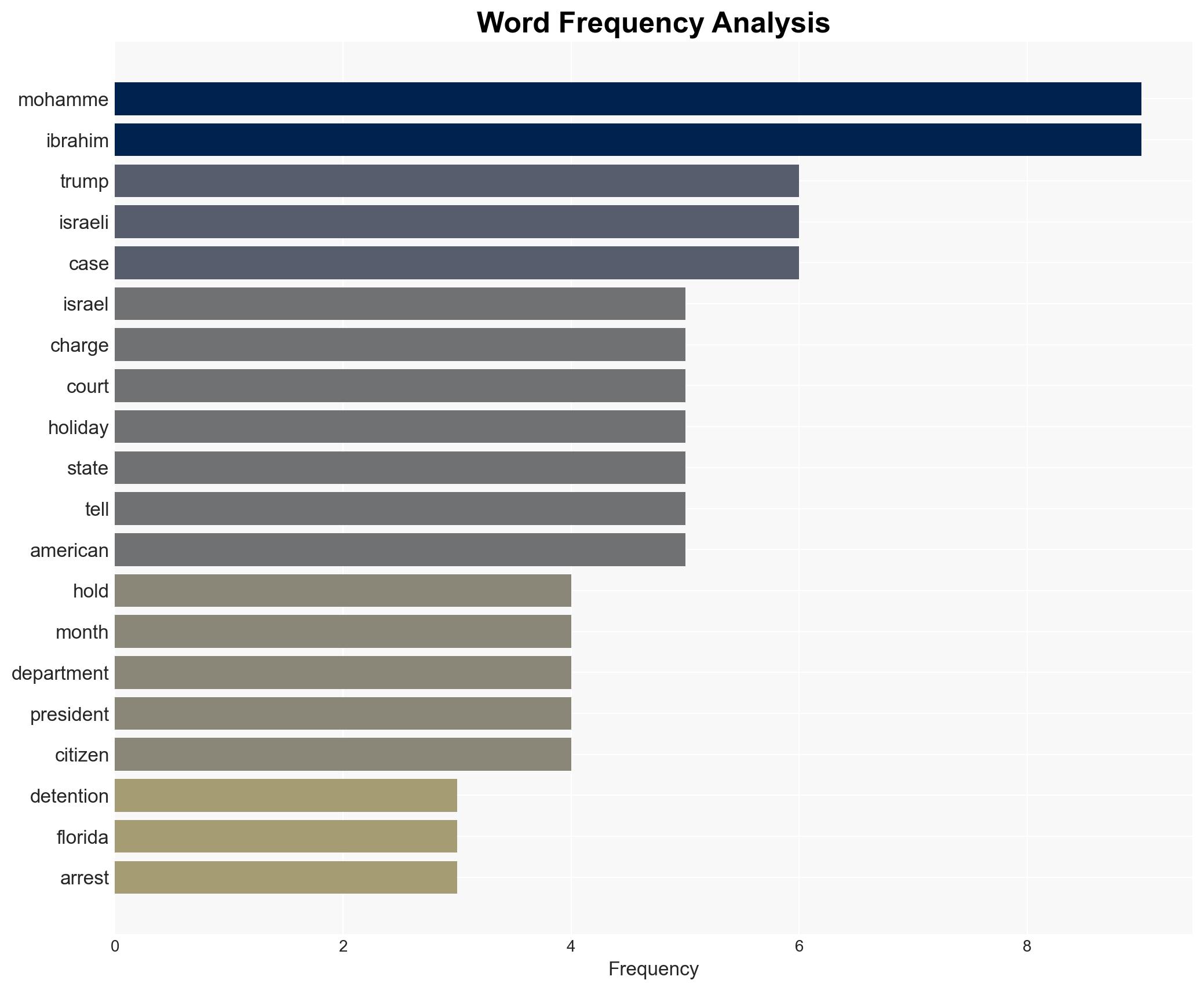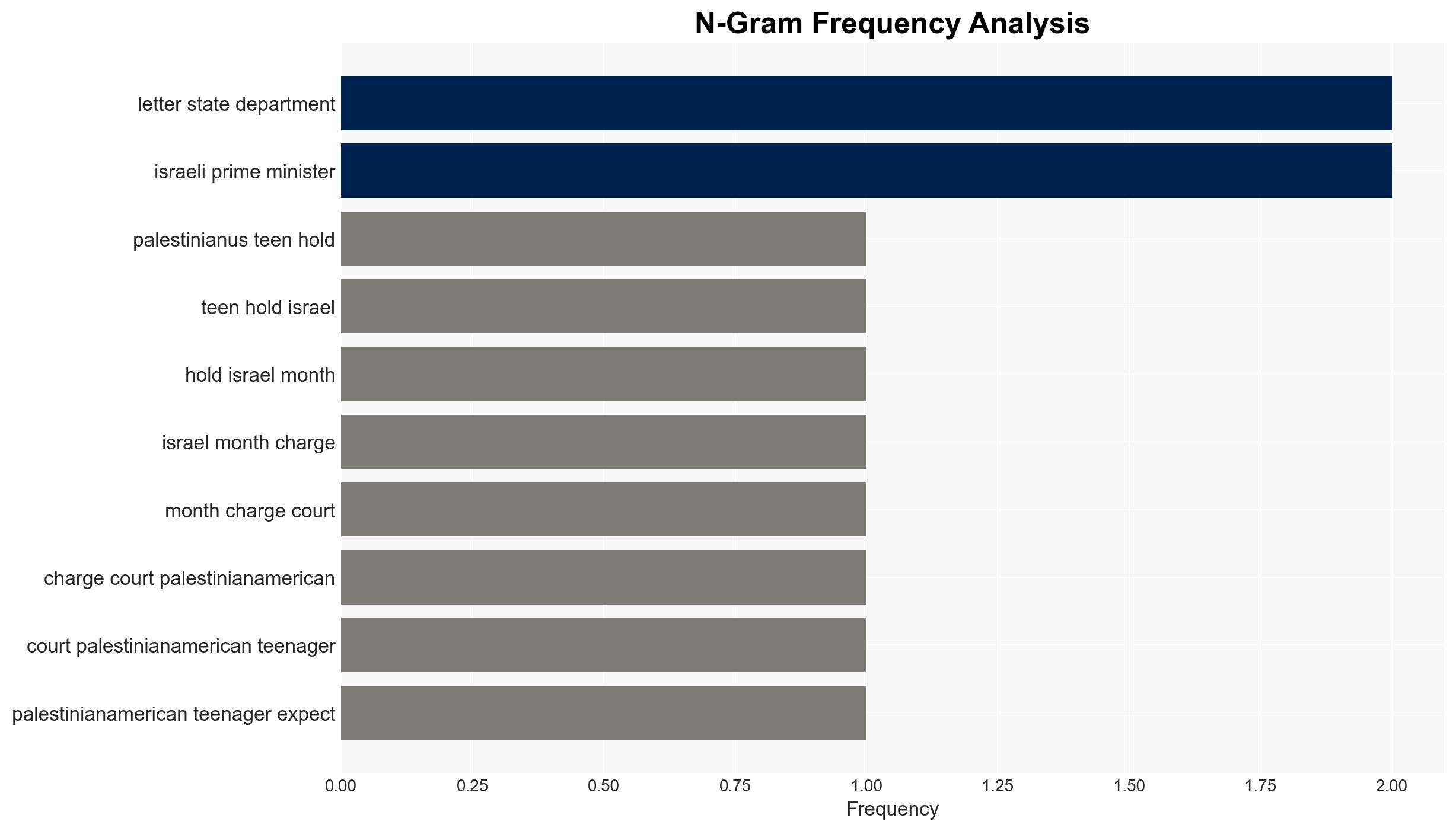US-Palestinian teenager detained by Israel for nine months without charges set to appear in court this week
Published on: 2025-11-26
AI-powered OSINT brief from verified open sources. Automated NLP signal extraction with human verification. See our Methodology and Why WorldWideWatchers.
Intelligence Report:
1. BLUF (Bottom Line Up Front)
With a moderate level of confidence, the most supported hypothesis is that the Israeli government is detaining Mohammed Ibrahim as a deterrent against potential unrest and to assert control over the West Bank region. It is recommended that diplomatic channels be leveraged to address the situation, emphasizing human rights and legal standards.
2. Competing Hypotheses
Hypothesis 1: The detention of Mohammed Ibrahim is primarily a security measure by Israel to prevent potential unrest and assert control over the West Bank. This hypothesis is supported by the context of heightened tensions in the region and Israel’s historical approach to security threats.
Hypothesis 2: The detention is a result of bureaucratic inertia and mishandling, with no strategic intent, exacerbated by communication failures between the U.S. and Israeli governments. This is less supported due to the high-profile nature of the case and the involvement of U.S. lawmakers.
3. Key Assumptions and Red Flags
Assumptions: It is assumed that the Israeli government views the detention as a necessary security measure. It is also assumed that U.S. diplomatic efforts are genuine and not merely performative.
Red Flags: The lack of formal charges and the alleged mistreatment of Mohammed Ibrahim raise concerns about human rights violations. The involvement of U.S. lawmakers suggests potential political leverage or pressure that could influence the situation.
4. Implications and Strategic Risks
The continued detention of Mohammed Ibrahim could escalate tensions between the U.S. and Israel, potentially affecting diplomatic relations. It may also incite unrest in the West Bank, leading to broader regional instability. The situation could be exploited by adversaries to criticize U.S. foreign policy and its alliance with Israel.
5. Recommendations and Outlook
- Engage in high-level diplomatic discussions with Israeli officials to secure Mohammed Ibrahim’s release, emphasizing legal and human rights standards.
- Monitor the situation closely for signs of escalation or unrest in the West Bank.
- Best-case scenario: Mohammed Ibrahim is released, and diplomatic relations remain stable.
- Worst-case scenario: The situation escalates, leading to unrest and strained U.S.-Israel relations.
- Most-likely scenario: Prolonged diplomatic negotiations with gradual de-escalation.
6. Key Individuals and Entities
Mohammed Ibrahim, Benjamin Netanyahu, Chris Van Hollen, Zahar Ibrahim, Donald Trump
7. Thematic Tags
Regional Focus, Regional Focus: Middle East, U.S.-Israel Relations, Human Rights, Diplomatic Negotiations
Structured Analytic Techniques Applied
- Causal Layered Analysis (CLA): Analyze events across surface happenings, systems, worldviews, and myths.
- Cross-Impact Simulation: Model ripple effects across neighboring states, conflicts, or economic dependencies.
- Scenario Generation: Explore divergent futures under varying assumptions to identify plausible paths.
- Narrative Pattern Analysis: Deconstruct and track propaganda or influence narratives.
Explore more:
Regional Focus Briefs ·
Daily Summary ·
Support us





